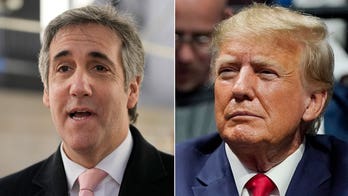House Republicans continued their effort to strip funding from last year's health care overhaul bill Tuesday, passing legislation to eliminate the money slated to establish a key component of the Affordable Care Act. Republicans said that given the state of the economy, the health care law's provisions need to be reassessed.
"Quite simply, our country is broke and we cannot continue to spend money like we have in the past," said Rep. Tom Reed, R-N.Y., "Slush funds and unlimited tasks on the treasury are the first to go."
The House bill under consideration eliminated funds for the implementation of health care exchange markets. Under the Affordable Care Act, individuals join together to purchase health insurance in the exchange markets to bargain for lower rates.
"The exchanges make sense, they create a market. It is a market driven program where competition occurs," said Rep. John Garamendi, D-Calif. That competition, Democrats contend, would force premiums downward as insurance companies jockey for customers.
Republicans worried that the language in the health care law gives too much power of the purse to Health and Human Services Secretary Kathleen Sebelius.
"The Secretary of Health and Human Services shouldn't be able just to obligate with no oversight by the Congress how much money goes in the creation and maintenance of these exchanges," said Rep. Joe Barton, R-Texas, "That's why we put forth the bill."
Democrat Jared Polis of Colorado called the repeal proposal a distraction from the true desires of the American people.
"I had the chance to have public meetings in the last two weeks back in my district as many members of Congress have," Polis said, "They wanted us to deal with the deficit. They wanted us to deal with jobs and the economy."
"This is focusing on spending," said Rep. Cliff Stearns, R-Fla., "It's limiting spending." Stearns added that by controlling federal spending and slowing the growth of the national debt, Congress would help to stimulate the economy.
Though it is unclear whether the bill would be able to pass in the Senate, the White House issued a veto threat for the measure Monday evening.




